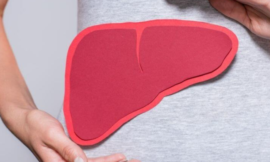What is metabolism? This is the process in which conversion of what you eat into energy. Our body needs the energy to function properly, Even if we rest or sleep energy is needed to breathe, circulation of blood, etc. Maintaining a balanced metabolic rate is important, but our lifestyle has a large impact on this metabolism. An unhealthy lifestyle affects the metabolic process and may lead to health issues.
Some supplements claiming to boost your metabolism may have little or no benefit and may contain substances that have serious side effects. But these are some natural ways to boot our metabolic rate, these are;
Proper Eating
Eating food can increase your metabolism for a few hours and eat at consistent times may help maintain metabolic balance. Including plenty of nutrients in your meal is important. Protein causes the largest rise in the thermic effect of food (TEF). It increases your metabolic rate by 15–30%, compared to 5–10% for carbs and 0–3% for fats. Eating protein has also been shown to help you feel more full and prevent you from overeating. Eating more protein can also reduce the drop in metabolism often associated with losing fat.
Drink Coffee
Studies have shown that the caffeine in coffee can boost metabolism by 3–11%. Like green tea, it also promotes fat burning. However, this seems to affect lean people more. In one study, coffee increased fat burning by 29% for lean women, but only 10% for obese women.
Drinking Enough Water

Staying hydrated is essential for the body to function at its best. Water is necessary for optimal metabolism, and it may help a person lose weight. People who drink water instead of sugary drinks are more successful at losing weight and keeping it off. This is because sugary drinks contain calories, so replacing them with water automatically reduces your calorie intake. Studies have shown that drinking 17 ounces (0.5 liters) of water increases resting metabolism by 10–30% for about an hour. This calorie-burning effect may be even greater if you drink cold water, as your body uses energy to heat it up to body temperature.
High-Intensity Workout
Strength training helps build muscle, which may increase metabolism. It can help you burn more fat by increasing your metabolic rate, even after your workout has finished. Muscle mass has a higher metabolic rate than fat, which means that muscle mass requires more energy to preserve.
HIIT is an alternative to steady cardio. Running, swimming, or cycling at a continuous rate are examples of steady cardio. Instead, it may help to try a routine that involves alternating periods of higher-intensity and lower-intensity exercise. This might involve sprinting for 1 minute then walking for 2 minutes or switching between short bursts of jumping jacks and walking recovery periods.
Getting plenty of sleep
Lack of sleep is linked to a major increase in the risk of obesity, this may partly be caused by the negative effects of sleep deprivation on metabolism.
When a person gets too little sleep, the body releases a hormone, ghrelin, which can make a person feel hungry. It also releases less leptin, a hormone that helps a person feel full.
Getting enough sleep can help ensure that these hormones remain balanced. This can prevent a person from overeating.
Drink Green Tea

Green tea has been shown to increase metabolism by 4–5%. Green tea can be a good alternative to sugary juices, and drinking it can help ensure that a person is getting enough water during the day. Apart from metabolism-boosting properties may help prevent the dreaded weight loss plateau that occurs due to a decrease in metabolism.
Reducing stress
Stress affects hormone levels, and it can cause the body to produce more cortisol than usual. Cortisol is a hormone that helps regulate appetite, abnormal cortisol levels in people experiencing disordered eating. Disordered eating, including dietary restraint and certain weight concerns, may lead to unhealthful eating patterns, which can disrupt metabolism. Stress is also closely related to the quality of sleep, which can influence metabolism.
Eating at regular times
Eating at consistent times may help maintain metabolic balance. If you eat in- proper timing, the body may burn calories more slowly and store more fat cells. A person should eat several small meals or snacks about 3 or 4 hours apart. For the complete digestion of food, there should be a break between your meals and how much food we eat at a time is also matter.
Take care these tips in your life and improve your metabolic rate of healthy life.





